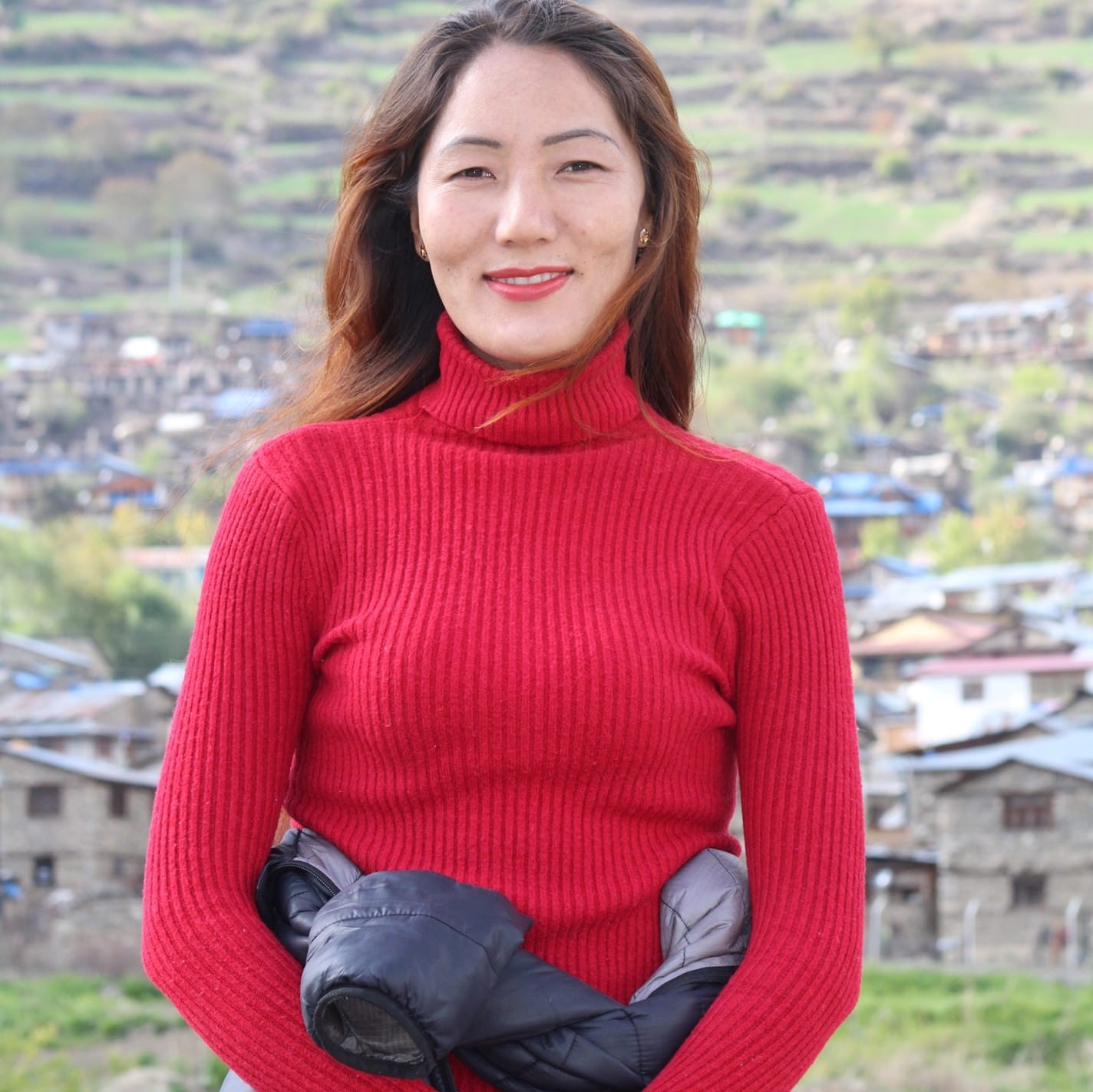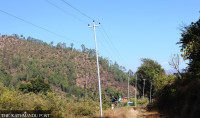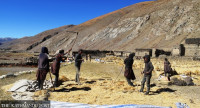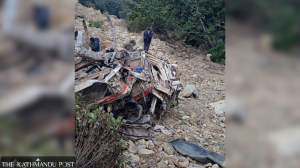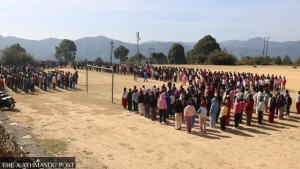Karnali Province
Hilsa, Lapcha border points in Humla opened for a day after 10 months
On Sunday, 16 trucks loaded with goods entered Nepal from China through the border points at the request of Namkha Rural Municipality.
Kalendra Sejuwal & Chhapal Lama
On Sunday, Hilsa and Lapcha border points in Humla district were opened for a day after 10 months of closure due to the coronavirus pandemic. The borders were closed again on Monday.
Sixteen trucks loaded with goods entered Nepal from China through the border points at the request of Namkha Rural Municipality. According to Bishnu Lama, chairman of the rural municipality, 12 trucks loaded with flour, rice, pulses, sugar and warm clothes, among other items, entered Nepal through Hilsa border point.
“These materials will be distributed to the five wards of Namkha,” said Lama.
Four other trucks loaded with similar goods entered Nepal through Lapcha border point. The trucks were heading towards Halji, Jang and Til villages in Ward No. 6.
“Materials worth around Rs 10 million were imported from both the border points. Had it not been for this cargo, Limi residents would have had to spend the winter without food and essential supplies,” said Lama.
Every winter, Limi valley, which is at around 5,000 meters from the sea level, gets disconnected from Simikot, the district headquarters of Humla, and other settlements due to heavy snowfall and extreme weather conditions.
A month ago, the Food Management and Trading Company Ltd had also sent 500 quintals of rice to Limi.
According to Lama, his office had requested the Chinese Embassy in Kathmandu to open the border points to import essential goods. The embassy then coordinated with the Chinese government to open the border for three days in mid-December.
“We had asked the embassy to open the border for three days. But since all goods were delivered in a day, there is no need to keep the border points open for three days,” said Lama.
Around 900 families with 4,500 individuals of Namkha Rural Municipality in Humla rely on the Chinese market in Tibet for essential supplies. They bring rice, flour and other items from Taklakot in Tibet. But this year, Namkha residents faced difficulties in managing essential goods, as the border points were sealed in March to contain the spread of the virus.
“If we had not brought these food items on Sunday, Namkha residents would have had to face a food shortage this winter. Over a hundred businessmen of Namkha who stay in Taklakot helped us import the goods,” Lama said.
Hilsa, Limi and other mountainous areas have already witnessed snowfall twice this winter. The temperature in Hilsa has dropped to minus seven degrees Celcius these days.
“We are having a hard time coming out of our houses due to the increasing cold. Now, we can rest easy since we now have plenty of food grains to last us this winter,” said Chhepal Lama, a local resident in Yarigaun.
Five months ago, a border outpost (BOP) of the Armed Police Force was established in Hilsa and security personnel have been patrolling the border area since.
“We are patrolling the border area 24/7 in these extreme weather conditions to check unlawful activities,” said APF Inspector Suraj KC.




 16.12°C Kathmandu
16.12°C Kathmandu
